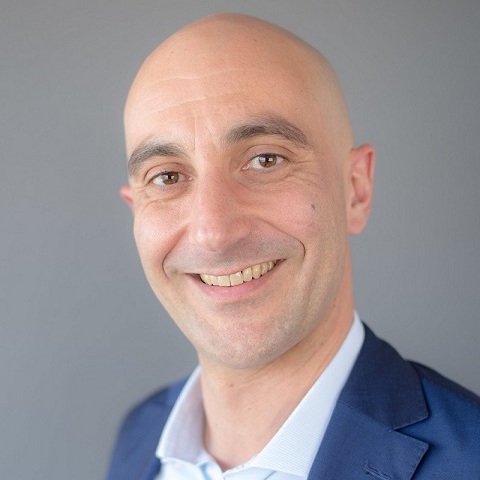“As our lives have been turned upside down by the COVID-19 pandemic, this World IP Day we recognize more than ever that investing in creativity, in innovation, and in the visionaries, has allowed us as a society to cope and fight back with unprecedented tools.”
 “I wanted to do an album with the sounds of the fifties, the sounds of the sixties, of the seventies. And then have a sound of the future. […] Wait a second, […] why don’t I use the synthesizer, which is the sound of the future. […] [N]obody told me what to do. And there was no preconception of what to do.”
“I wanted to do an album with the sounds of the fifties, the sounds of the sixties, of the seventies. And then have a sound of the future. […] Wait a second, […] why don’t I use the synthesizer, which is the sound of the future. […] [N]obody told me what to do. And there was no preconception of what to do.”
– Giorgio Moroder
Today, for the 20th year in a row, we celebrate World IP Day. Today also marks the 80th birthday (after mine, another notable quarantine birthday) of a composer, songwriter, and record producer that has changed the history of music: Giorgio Moroder. Nicknamed the “Father of Disco”, he pioneered electronic music, produced numerous world hits – including some of Donna Summer’s major successes – and later composed film screenplays and scores (and won several awards for that work, including three Oscars). More recently, Moroder, a native of Ortisei, Italy, was honored with and contributed to a song named after him by the acclaimed EDM duo, Daft Punk.
Moroder is a visionary and an eclectic artist. In addition to his vast, acclaimed and diverse music career, other projects included experimenting with visual art, putting up neon and LED light shows, and creating his own cognac liquor. Moroder even collaborated on the ideation and commercialization of an Italian super-car, the Cizeta-Moroder V16T.
Similarly to Moroder, artists and creatives push the boundaries of ingenuity, create worlds for us to get lost in, imagine digital and analog alternative realities to soothe our senses and soul, and blur the lines between art, entertainment and technology. Innovators in all fields question the status quo and pursue a vision in creative art, technology, medicine, business, and all other areas of human knowledge. And while they do so, they touch many lives and, through their collective contribution, impact society as a whole.
As our lives have been turned upside down by the COVID-19 pandemic, we recognize more than ever that investing in creativity, in innovation, and in the visionaries, has allowed us as a society to cope and fight back with unprecedented tools. The creative industry is helping us through these difficult times with entertainment, news, and other content. The pharma industry got together and is working at extraordinary pace to find a cure or a vaccine. Technology has brought us together like never before and helps us connect virtually in these difficult times of physical isolation. Companies large and small are coming together to help solve or ease the crisis. Researchers, doctors and healthcare professionals from around the globe are working heroically through this emergency.
Innovation does not happen in a vacuum. Innovation exists because of the work of the luminaries and the visionaries like Moroder. IP protects that work. While IP generally refers to patents, copyright, trademarks and designs, a broader definition that I prefer to use is that of intellectual assets. Innovation comes in many forms or shapes, and it would be a mistake to limit that definition to a new widget, a book, a song, or a new drug. Companies and individuals innovate in a variety of areas, such as business models, financial vehicles, customer relations, supply chain, advertisement methods, technology standards. Ultimately, protecting intellectual assets is a strategic decision that can provide great upsides.
When I graduated from engineering school, there was no World IP Day, and I barely knew what a patent was. It is good to see that awareness of how intellectual assets impact society has grown substantially in the past few years. The work of the World Intellectual Property Organization (WIPO), patent offices, associations and all IP professionals has to be praised for this increased visibility. However, more work remains to be done to make sure the value of innovation and the role of IP is explained and highlighted at all levels of society, and to engage creative minds across all sectors of society. More education – particularly for small businesses – is needed, together with resources to allow individual inventors, startups and other entities with limited resources to invest in the protection of intellectual assets. Furthermore, a lot more work needs to be done to help close significant gender and minority gaps, and education about the value of innovation and ingenuity needs to start well before college.
Especially today, during these challenging times, let us honor the visionaries and recognize their outstanding impact on our lives through the celebration of World IP Day.
Image Source: Deposit Photos
Image ID: 21825825
Copyright: everythingposs

![[IPWatchdog Logo]](https://ipwatchdog.com/wp-content/themes/IPWatchdog%20-%202023/assets/images/temp/logo-small@2x.png)

![[Advertisement]](https://ipwatchdog.com/wp-content/uploads/2024/04/UnitedLex-May-2-2024-sidebar-700x500-1.jpg)
![[Advertisement]](https://ipwatchdog.com/wp-content/uploads/2024/04/Artificial-Intelligence-2024-REPLAY-sidebar-700x500-corrected.jpg)
![[Advertisement]](https://ipwatchdog.com/wp-content/uploads/2024/04/Patent-Litigation-Masters-2024-sidebar-700x500-1.jpg)

![[Advertisement]](https://ipwatchdog.com/wp-content/uploads/2021/12/WEBINAR-336-x-280-px.png)
![[Advertisement]](https://ipwatchdog.com/wp-content/uploads/2021/12/2021-Patent-Practice-on-Demand-recorded-Feb-2021-336-x-280.jpg)
![[Advertisement]](https://ipwatchdog.com/wp-content/uploads/2021/12/Ad-4-The-Invent-Patent-System™.png)






Join the Discussion
6 comments so far.
Karel van Lelyveld
May 6, 2020 06:27 amHi Matteo, thank you for this encouraging contribution. Indeed remarkable, that at the end of your studies the concept of a patent still was unknown to you, even as an engineer. Apparently not sufficient attention in the academic world for IP. Indeed, the threshold for individual inventors to get a patent, or rather a bunge of patent rights, which is necessary to have some impact, is high. That is unfortunate, but increasingly patents are difficult to acquire, both from the point of technology -much has been invented before- and financing. There is nobody to blame. It is just the situation as it is. And sometimes the inventor in spe might be over optimistic in his or her judgement of the novelty of the own idea. That happens equally in individual cases as well in large organisations. So, keep writing, make the patent awareness great again!
Glen Wade Duff
April 27, 2020 08:17 amThis writing was so well done that I was lost in the moment celebrating WIP day. Great writing. It harkens passionately to the days when we saw our innovations celebrated, not punished, doesn’t it?
IP Punch
April 27, 2020 07:53 amFantastic post, very informative. we wonder why the other specialists of this sector do not notice this. You must continue your writing. we are confident, you have a great readers’ base already!
Pro Say
April 26, 2020 04:21 pm“Having an World IP Day is probably not a bad thing. However, for independent inventors like me it is more of a sneer and a taunting than a celebration of our work.”
Me, too, Ternary. Me too.
Our prescient Founders would be shocked, saddened, and greatly disappointed at how our very own courts — including SCOTUS — have exterminated and barred entire swaths of innovation; and in the process crushing the dreams of independent inventors and innovative startups and small companies.
All while our very own Congress sits on it’s hands . . . after promising to restore our patent system to it’s former world-leading status.
p.s. Thanks Matteo. Was unfamiliar with Moroder, his innovative mind, and his great accomplishments.
Barbara Baffer
April 26, 2020 02:44 pmThanks for sharing this story on Giorgio Moroder-I had never heard of him yet have enjoyed his music for years. Similar to Moroder, we are all counting on innovation from around the world to solve the COVID-19 crises.
Ternary
April 26, 2020 12:27 pmAmen, Matteo. Moroder is, in my opinion, an example of an independent inventor. He is living proof of how innovation comes from individuals, not from companies or institutions.
You say:
“More education – particularly for small businesses – is needed, together with resources to allow individual inventors, startups and other entities with limited resources to invest in the protection of intellectual assets.” But who do you want to educate? Not the independent inventors, I hope. They continue (at a significantly reduced rate, I find) to do their creative work. The establishment, including large companies, are doing their best to deny independent inventors adequate protection for their IP. If you educate independent inventors about the state of our patent system they will probably decide that any pursuing of IP rights in the form of patents is most likely futile.
Having an World IP Day is probably not a bad thing. However, for independent inventors like me it is more of a sneer and a taunting than a celebration of our work.